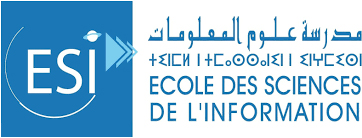The main aim of the “Information, documentation, knowledge and society” doctoral program is to train researchers in the field of information science, focusing on innovative information and knowledge themes with considerable societal implications.
This doctoral program aims to :
- better position in the national and international scientific research environment: produce and disseminate research work in national and international scientific journals;
- contribute to the development of theoretical and applied research in the various fields of information and communication sciences;
- approach and understand the new issues arising from the transformation of society and organizations as a result of digital technology;
- provide scientific research support for programs, projects and projects structuring socio-economic, technological and cultural development.
Admission requirements
The conditions for admission to ESI’s doctoral program are as follows:
Diplomas required:
- Master’s degree
- Engineering degree or recognized equivalent
- “Informatiste Spécialisé” diploma
- DESA diploma
Scientific and pedagogical prerequisites
- Fluency in French and knowledge of English
- Good computer skills
Course program
Transversal modules
First year
- Research ethics and scientific integrity
- Research methodology
- Critical reading
- Researching scientific and technical information
- Introduction to Latex Writing
Second year
- Entrepreneurial culture
- Information law
- Open access to scientific and technical information
- Pedagogy at universities
- Scientific communication and publication
- Innovation and patenting seminar
Specialty modules
This training is specific to each doctoral student, depending on the nature and prerequisites of his/her research topic. The choice of module(s) is made by the doctoral student in consultation with his or her thesis supervisor, and is based on the complementary skills and scientific fields likely to help the doctoral student advance in his or her research work. Attendance certificates are issued. It is 100 hours long. These 100 hours can be accounted for in the form of :
- Participation in seminars, conferences, thematic schools, elective courses, doctoral days,
- Participation in the organization of scientific and cultural events, etc.
